lack cumin seed, often referred to as Nigella sativa, kalonji, or black seed, is not actually related to the common cumin (Cuminum cyminum) but belongs to the buttercup family. These tiny, jet-black, triangular-shaped seeds have a slightly bitter, peppery, and pungent flavor with hints of onion and oregano. They are a staple in Middle Eastern, Indian, and North African cuisines, prized not only for their distinctive taste but also for their extensive history of medicinal use.
Health Benefits of Black Cumin Seeds
Black cumin seeds have been revered for centuries in traditional medicine systems like Ayurveda, Unani, and traditional Arab medicine, often hailed as a “remedy for everything but death.” Modern scientific research is exploring these ancient claims, with promising results largely attributed to their active compound, thymoquinone.
Here are some key health benefits:
Powerful Antioxidant & Anti-inflammatory: Black cumin seeds are rich in antioxidants, particularly thymoquinone, which combat free radicals and reduce oxidative stress in the body. This strong antioxidant and anti-inflammatory action helps protect cells from damage and plays a role in preventing various chronic diseases.
Immune System Support: They are believed to modulate the immune system, helping it function more effectively to fight off infections and diseases.
Digestive Health: Traditionally used to aid digestion, relieve indigestion, bloating, and stomach discomfort. They may also have anti-ulcer properties and help combat certain gut bacteria.
Respiratory Health: Black cumin seeds have been used to alleviate symptoms of asthma, bronchitis, and other respiratory conditions. Some studies suggest they can help improve wheezing and coughing.
Heart Health: Research indicates that black cumin seeds may help lower “bad” LDL cholesterol and triglyceride levels, and modestly improve “good” HDL cholesterol. They can also contribute to lowering blood pressure.
Blood Sugar Control: They show potential in improving insulin sensitivity and reducing blood sugar levels, making them beneficial for individuals with type 2 diabetes.
Weight Management: Some studies suggest that black cumin can aid in weight loss by helping to reduce appetite, improve metabolism, and stabilize blood sugar, which reduces cravings.
Skin and Hair Health: Black cumin seed oil is popular for topical application. It’s believed to help with skin conditions like acne, promote hair growth, and improve the overall health and appearance of skin and hair due due to its anti-inflammatory and antioxidant properties.
Anti-microbial Properties: They possess antibacterial, antiviral, and antifungal properties, which may help the body fight off various infections.
Kidney and Liver Protection: Some studies suggest a protective effect on the kidneys and liver, helping to guard against toxicity.
Nutritional Facts of Black Cumin Seeds (per 100g)
The nutritional composition can vary slightly depending on the source and processing, but here’s a general overview for 100 grams of black cumin (Nigella sativa) seeds:
Calories: ~345-375 kcal
Protein: 15-21 g
Total Fat: 15-20 g (Note: If it’s a seed with high oil content, this can go up to 30-40g in some analyses, reflecting variations in growth conditions and extraction. Studies on the oil show high unsaturated fatty acids.)
Saturated Fat: ~1.5-2.5 g
Monounsaturated Fat: ~3-5 g
Polyunsaturated Fat: ~10-12 g (Rich in Linoleic Acid – Omega-6)
Total Carbohydrates: 50-55 g
Dietary Fiber: 10-12 g
Sugars: ~2-3 g
Cholesterol: 0 mg
Sodium: ~10-20 mg
Potassium: ~600-700 mg
Vitamins:
Vitamin B1 (Thiamin): Present
Vitamin B2 (Riboflavin): Present
Vitamin B3 (Niacin): Present
Vitamin B6 (Pyridoxine): Present
Folate (Vitamin B9): Present
Vitamin C: Present (though amounts can vary)
Vitamin E: Present (especially in the oil)
Minerals:
Calcium: Good source (~100-200 mg)
Iron: Excellent source (~7-10 mg)
Magnesium: Good source (~150-200 mg)
Phosphorus: Good source (~300-400 mg)
Zinc: Good source (~3-5 mg)
Copper: Present
Manganese: Present
Various Recipes with Black Cumin Seeds
Black cumin seeds have a strong, distinct flavor, so they are typically used in smaller quantities to enhance dishes.
Tempering (Tadka/Baghaar) in Indian Cuisine:
This is perhaps the most common use in Kerala and other parts of India.
Method: Heat a small amount of oil (like coconut oil in Kerala, or mustard oil/ghee elsewhere). Add black cumin seeds (along with mustard seeds, curry leaves, etc., depending on the dish). Once they splutter and become fragrant, pour this tempering over curries (especially lentil dals, vegetable curries), stews, or even poriyal (stir-fried vegetables). The aroma instantly elevates the dish.
Kerala Context: While not as ubiquitous as mustard seeds, black cumin can be used in the tempering for certain fish curries, vegetable stir-fries, or even some chicken preparations for a distinct aromatic note.
Bread and Baked Goods:
Naan/Roti/Paratha: Sprinkle black cumin seeds over the dough before cooking for a delightful texture and flavor. This is very common in North Indian breads.
Biscuits/Crackers: Incorporate them into savory biscuit or cracker dough for a unique taste.
Buns/Rolls: Top bread rolls or burger buns with black cumin seeds for a distinctive aroma.
Vegetable Dishes and Stir-fries:
Simple Veggie Fry: Add black cumin seeds to the oil at the beginning of cooking when making simple vegetable stir-fries (e.g., potato, cauliflower, brinjal fry) for an aromatic base.
Pickles: Black cumin seeds are a key ingredient in many Indian and Middle Eastern pickles, providing flavor and acting as a preservative.
Rice Dishes:
Kalonji Pulao/Biryani: A simple pulao where black cumin seeds are tempered in ghee/oil along with whole spices (like cloves, cinnamon) and then added to cooked rice. This infuses the rice with a wonderful aroma. In Kerala, a subtle addition to certain biryanis or neychoru (ghee rice) could be interesting.
Flavored Rice: Toss a pinch of roasted and crushed black cumin seeds into plain steamed rice for a quick flavor boost.
Chutneys and Dips:
Kalonji Chutney: Ground with other spices, herbs, and sometimes vegetables to make a pungent chutney.
Hummus/Dips: A sprinkle of black cumin seeds can add a visual appeal and a peppery kick to hummus or other savory dips.
Marinades and Rubs:
Meat/Poultry: Include crushed black cumin seeds in dry rubs or marinades for chicken, lamb, or fish, especially in Middle Eastern or Indian-inspired dishes.
Yogurt and Salads:
A light sprinkle of dry-roasted black cumin seeds over yogurt or salads can add a healthy crunch and distinct flavor.
Tips for Usage in Aluva (Kerala Context):
Given the strong culinary traditions in Kerala, black cumin seeds might not be as universally used as mustard seeds or curry leaves. However, their unique flavor can be a delightful addition to:
Some Beef/Mutton Curries: A pinch of roasted and ground black cumin can add depth to the spice paste.
Certain Vegetable Preparations: Especially those with a slightly pungent profile.
Homemade Pickles: It would blend well with the sour and spicy flavors common in Kerala pickles.
As a tempering in parippu (dal) or sambar variations: For a different aromatic layer.


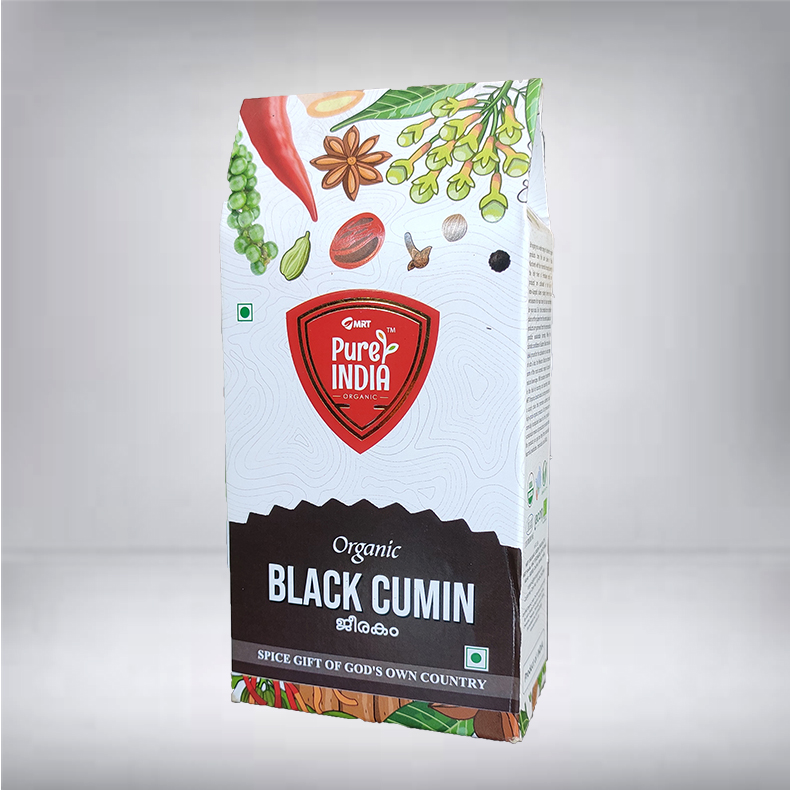
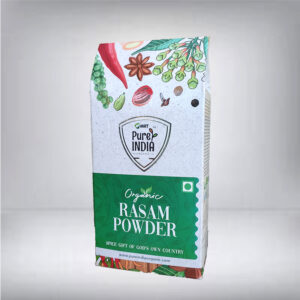
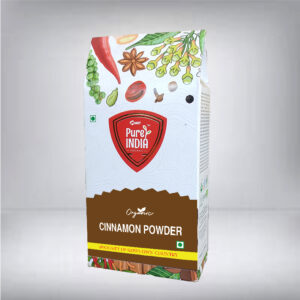

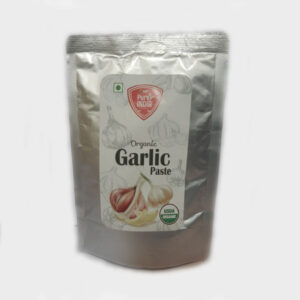
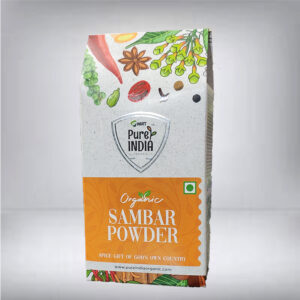
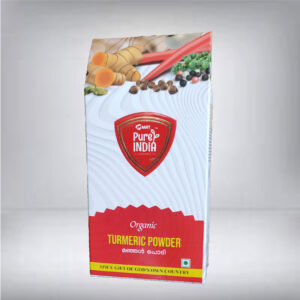
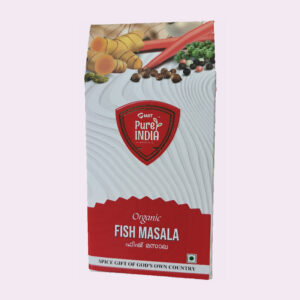
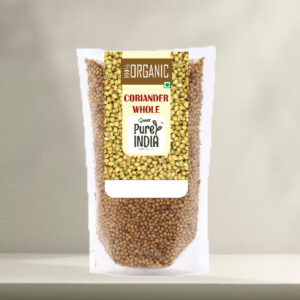

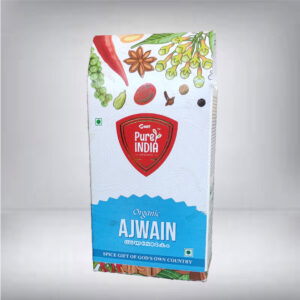
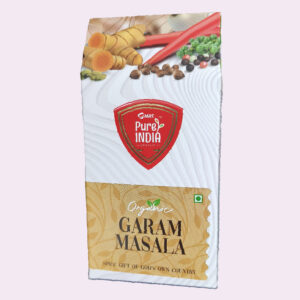
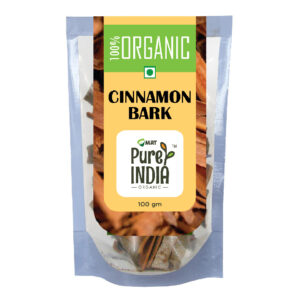







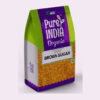
Reviews
There are no reviews yet.